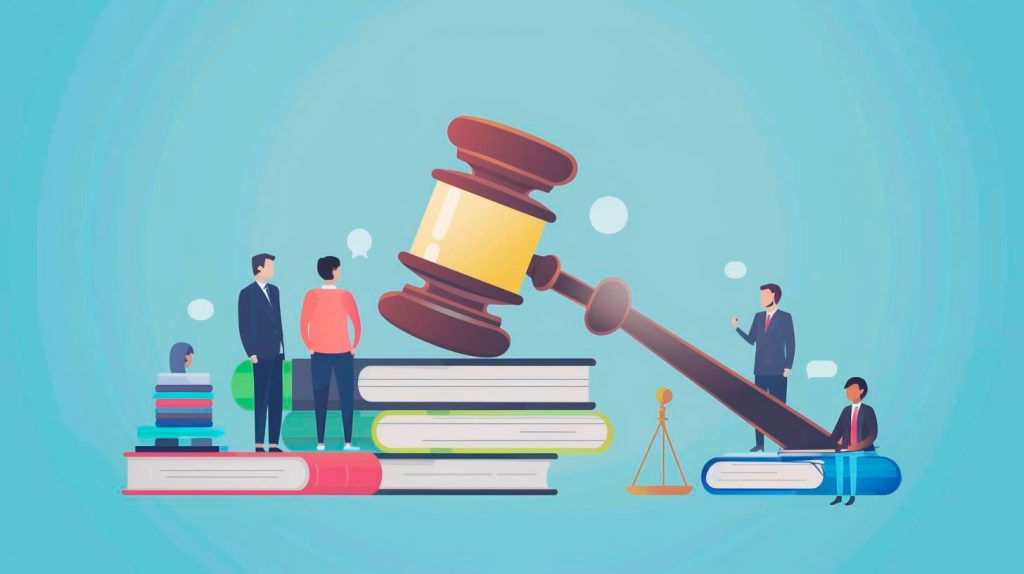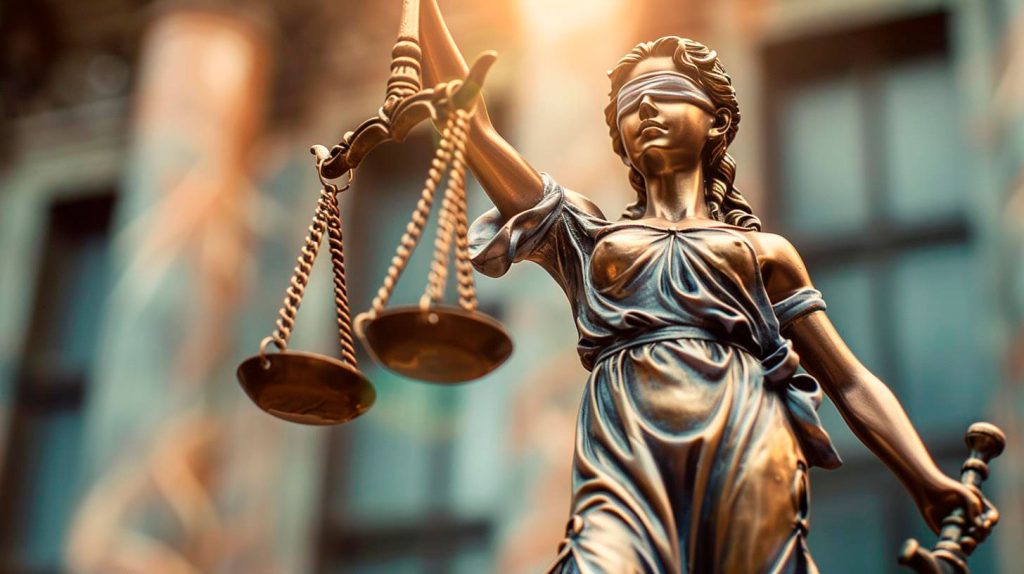
Strategies for Protecting Personal Credit During Business Disputes
In this article, we will discuss some strategies for safeguarding your personal credit during business disputes.
Separate Personal and Business Finances
One of the most important steps you can take to protect your personal credit during a business dispute is to separate your personal and business finances. Mixing these finances can make it difficult to track expenses and debts, potentially leading to negative impacts on your personal credit.
By maintaining separate accounts for your personal and business finances, you can better manage your expenses and liabilities. This separation can also help in demonstrating to creditors and credit agencies that any issues related to your business are not reflective of your personal financial responsibility.
Monitor Your Credit Report Regularly
Monitoring your credit report regularly is essential for safeguarding your personal credit during business disputes. By keeping a close eye on your credit report, you can quickly identify any erroneous or negative information that may be impacting your credit score.
Tools like credit monitoring services can help you stay informed about any changes to your credit report and provide alerts for potential fraudulent activity. Being proactive about monitoring your credit report can help you address any issues promptly and minimize any long-term damage to your credit.
Communicate with Creditors
Open communication with your creditors is key to protecting your personal credit during a business dispute. If you anticipate any issues with making payments on time due to the dispute, it is important to reach out to your creditors and explain the situation.
Many creditors are willing to work with individuals facing financial challenges, especially if they are kept informed about the situation. By communicating openly with your creditors, you can potentially negotiate payment arrangements or other solutions that can help prevent negative impacts on your credit.
Seek Legal Guidance
During a business dispute, seeking legal guidance from a qualified attorney can be instrumental in protecting your personal credit. An attorney with experience in business disputes can help you navigate complex legal matters and ensure that your rights are protected throughout the process.
Legal guidance can also provide you with valuable insights and strategies for minimizing the impact of the dispute on your personal credit. By having a knowledgeable advocate on your side, you can take proactive steps to safeguard your financial interests during the dispute.
Business disputes can create significant challenges for individuals, especially when it comes to protecting personal credit. By implementing these strategies and seeking professional guidance, you can take proactive steps to safeguard your personal credit during a business dispute, ensuring that your financial future remains secure.
Understanding the Link Between Business Litigation and Personal Credit Scores
Business Litigation Overview
Business litigation refers to the legal disputes that arise between businesses, such as contract disputes, intellectual property infringement, and shareholder disagreements. These disputes can be time-consuming, costly, and damaging to a company’s reputation. It is crucial for businesses to have a strong legal team in place to handle any potential litigation effectively.
According to a recent study by the American Bar Association, over 50% of businesses are involved in litigation at any given time. This can have a significant impact on a company’s bottom line and overall success. It is essential for businesses to be proactive in resolving disputes and avoiding litigation whenever possible.
Personal Credit Score Importance
A personal credit score is a numerical representation of an individual’s creditworthiness and financial responsibility. It is used by lenders, landlords, and employers to evaluate a person’s financial health and reliability. A high credit score can open up opportunities for favorable loan terms, lower interest rates, and better rental options.
According to a recent report by Experian, only 33% of Americans have perfect credit scores above 800. This highlights the importance of maintaining a good credit score and managing personal finances responsibly. A low credit score can result in higher interest rates, difficulty obtaining loans, and limited financial opportunities.
The Impact of Business Litigation on Personal Credit Scores
Business litigation can have a direct impact on an individual’s personal credit score, especially for business owners. When a business is sued or faces financial difficulties, it can affect the personal finances of the owner, especially if they have personally guaranteed any business debts. This can result in missed payments, defaults, and ultimately a lower credit score.
In a study conducted by Dun & Bradstreet, it was found that 25% of business owners reported a decrease in their personal credit scores as a result of business litigation. This highlights the interconnectedness of business and personal finances and underscores the importance of having a clear separation between the two.
Protecting Your Personal Credit Score
It is crucial for business owners to take proactive steps to protect their personal credit scores in the event of business litigation. This includes keeping personal and business finances separate, avoiding personal guarantees on business debts whenever possible, and seeking legal advice to navigate any legal disputes effectively.
By being proactive and vigilant, business owners can minimize the impact of business litigation on their personal credit scores and financial well-being. It is always advisable to consult with a legal professional who specializes in business law to ensure that your interests are protected and your financial health is preserved.
Thank you for reading our blog article on this important topic. We hope you have found it informative and helpful. Stay tuned for more legal insights and advice from our team of experts.
Effects of Business Litigation on Individual Creditworthiness
In this article, we will delve into the effects of business litigation on individual creditworthiness and provide insights on how individuals can protect themselves from potential financial repercussions.
What is Business Litigation?
Business litigation refers to the legal proceedings that arise from disputes between businesses or individuals related to commercial transactions, contracts, partnerships, and other business-related matters. These disputes can lead to lawsuits, arbitration, or mediation to resolve the issues at hand. Business litigation can be costly and time-consuming, often resulting in financial losses for the parties involved.
Impact on Personal Finances
When a business is involved in litigation, it can have a direct impact on the personal finances of the business owners, partners, or shareholders. This is especially true for small business owners who may have personally guaranteed loans or credit lines for their business. In the event of a lawsuit, creditors may seek to collect debts from personal assets, leading to financial strain on individuals.
Additionally, legal fees and court costs associated with business litigation can quickly add up, draining personal savings and retirement accounts. This can result in cash flow problems for individuals and make it difficult to meet personal financial obligations such as mortgage payments, car loans, and credit card bills.
Effects on Creditworthiness
One of the most significant consequences of business litigation is the impact it can have on an individual’s creditworthiness. When a business is sued or faces financial distress, it can lead to missed payments on business loans or lines of credit. These delinquencies can be reported to credit bureaus, resulting in a negative impact on the personal credit scores of business owners.
Lower credit scores can make it challenging for individuals to qualify for new loans or credit lines, as lenders may view them as high-risk borrowers. Additionally, individuals may face higher interest rates on existing debts, making it more expensive to borrow money in the future.
Protecting Personal Creditworthiness
There are several steps individuals can take to protect their personal creditworthiness in the event of business litigation. First and foremost, it is important to separate personal and business finances by establishing separate bank accounts, credit cards, and loans for the business. This can help shield personal assets from legal claims against the business.
Additionally, individuals should monitor their credit reports regularly to identify any negative information related to business litigation. If there are inaccuracies or errors, they should be disputed with the credit bureaus to have them corrected. It is also crucial to communicate with creditors and lenders to explain the situation and explore options for restructuring or refinancing debts to avoid default.
Business litigation can have far-reaching consequences on individuals, including their personal finances and creditworthiness. By understanding the potential impacts of business disputes on personal credit scores, individuals can take proactive steps to protect themselves from financial harm. Separating personal and business finances, monitoring credit reports, and communicating with creditors are essential strategies for safeguarding personal creditworthiness in the face of business litigation.
As a law blogger for a company that provides lawyer services, it is important to educate individuals on the effects of business litigation and empower them to make informed decisions to protect their financial well-being.
The Financial Implications of Business Litigation on Personal Finances
Cost of Legal Representation
One of the main financial implications of business litigation is the cost of legal representation. Hiring experienced lawyers to defend or pursue a legal case can be incredibly expensive. According to a report by the American Bar Association, the average cost of a commercial litigation case can range from $50,000 to $200,000 or more, depending on the complexity of the case.
For individuals involved in business litigation, this cost can quickly deplete personal savings and assets. It is essential to carefully consider the potential financial impact of legal fees and explore alternative dispute resolution methods, such as mediation or arbitration, to potentially reduce costs.
Loss of Income and Business Opportunities
Business litigation can also result in the loss of income and business opportunities for individuals. Legal disputes can disrupt normal business operations, leading to decreased revenue and potential business closures. According to a study by the US Chamber Institute for Legal Reform, small businesses spend an average of $20,000 per year on litigation expenses, which can have a significant impact on personal finances.
Additionally, the negative publicity and reputational damage that can result from a legal dispute can impact future business opportunities and partnerships. Individuals involved in business litigation may face challenges in securing new clients or investors, leading to further financial strain on personal finances.
Financial Settlements and Judgments
In the event of a business litigation case, individuals may be required to pay financial settlements or judgments as a result of the legal proceedings. These settlements can be substantial and have long-term financial consequences for individuals and their families. According to a report by the US Department of Justice, the average settlement in a commercial litigation case is $1 million.
Individuals may be forced to liquidate personal assets, such as real estate or investments, to cover these expenses. It is crucial for individuals to work closely with their legal counsel to negotiate favorable settlement terms and explore options for mitigating the financial impact of legal judgments.
Protecting Personal Finances
Given the potential financial repercussions of business litigation on personal finances, it is essential for individuals to take proactive steps to protect themselves and their assets. One key way to safeguard personal finances is to secure adequate insurance coverage, such as liability insurance or directors and officers insurance, to mitigate the financial risks associated with legal disputes.
Additionally, individuals should work closely with experienced legal counsel to develop a comprehensive risk management strategy and explore alternative dispute resolution methods, such as negotiation or mediation, to potentially resolve legal disputes more cost-effectively. By taking proactive measures to protect personal finances, individuals can minimize the financial impact of business litigation and ensure long-term financial stability.
Business litigation can have significant financial implications on personal finances, ranging from the cost of legal representation to potential loss of income and business opportunities. Individuals involved in business disputes must carefully consider the financial risks and take proactive steps to protect their personal assets. By securing adequate insurance coverage, working closely with experienced legal counsel, and exploring alternative dispute resolution methods, individuals can mitigate the financial impact of business litigation and ensure long-term financial stability.












